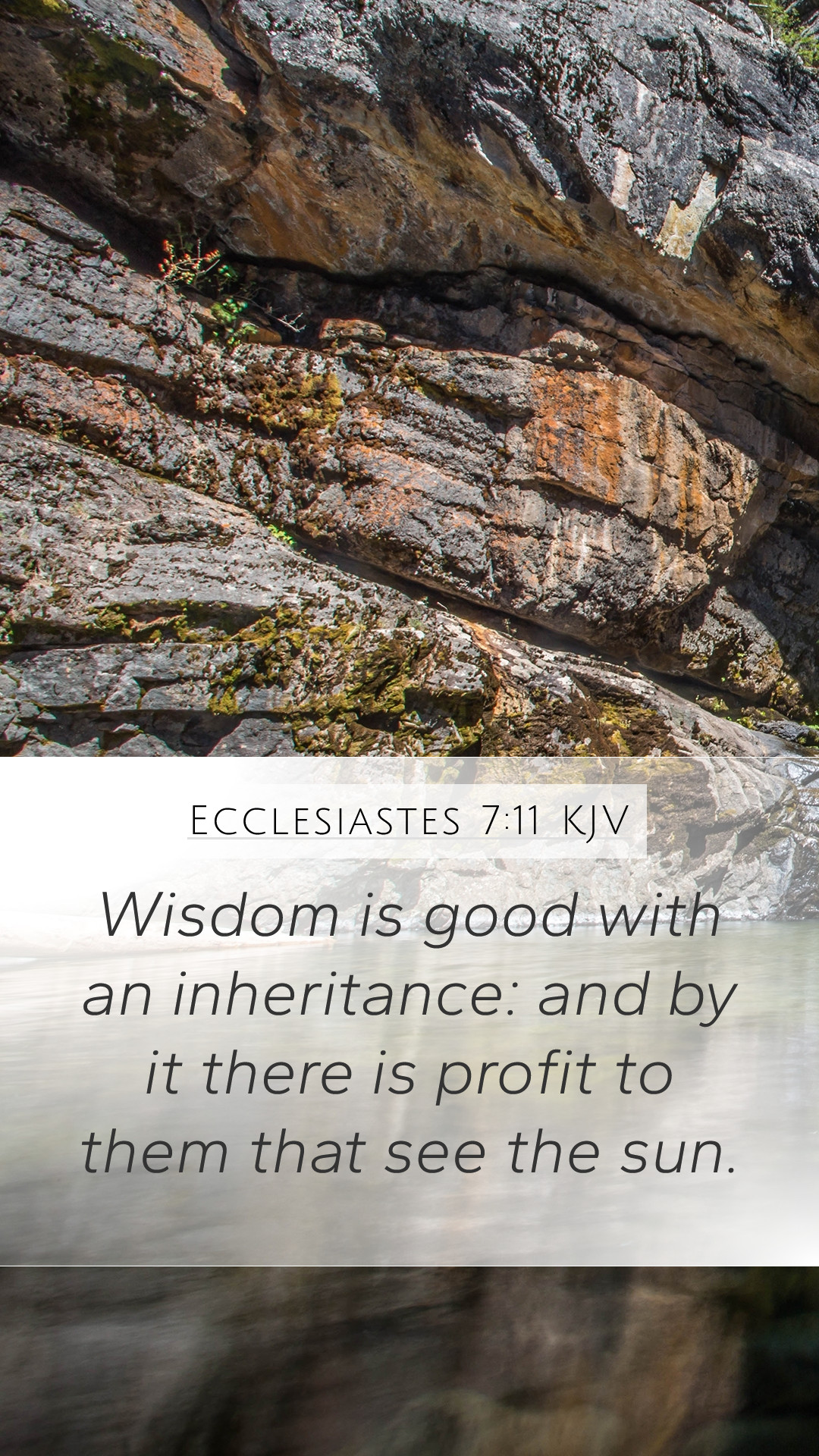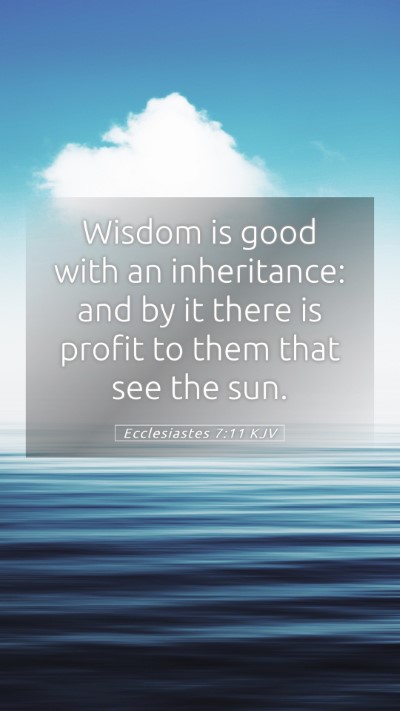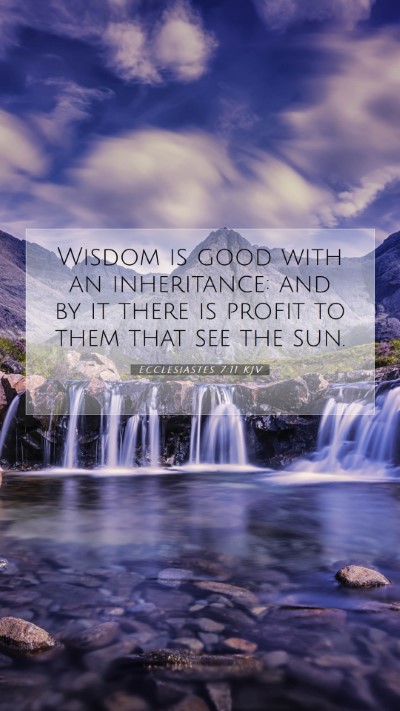Understanding Ecclesiastes 7:11
Ecclesiastes 7:11 states: "Wisdom is good with an inheritance: and by it there is profit to them that see the sun." This verse combines the value of wisdom with the concept of inheritance, suggesting that wisdom enhances the benefits derived from material wealth.
Context and Overview
This verse appears within a larger discourse on the nature of wisdom and folly in the book of Ecclesiastes. The author, commonly believed to be King Solomon, reflects on the experiences and observations regarding life's transient nature and the pursuit of true meaning.
Interpretations from Public Domain Commentaries
- Matthew Henry: In his commentary, Matthew Henry emphasizes that wisdom is superior to an inheritance. He points out that while an inheritance provides material benefits, wisdom fosters a deeper understanding and enables the individual to navigate life effectively. He suggests that wisdom not only enriches one’s life but also equips the individual to manage their inheritance wisely, leading to true prosperity.
- Albert Barnes: Albert Barnes highlights the dual value of wisdom mentioned in the verse. He interprets it as an assurance that wisdom enhances the value of an inheritance. He notes that those who possess wisdom can truly appreciate their blessings and make prudent choices that will yield sustained advantages over time. In essence, wisdom functions as a guide to ensure that the inheritance is utilized properly and not squandered.
- Adam Clarke: Adam Clarke elaborates on the significance of sight in the phrase "profit to them that see the sun." He interprets this as a metaphor for life itself. Those who possess wisdom are shown to live life to the fullest, gaining insight and understanding into their circumstances. Clarke suggests that wisdom transcends mere financial gain and offers insights into the meaning and purpose of life.
Thematic Analysis
Thematically, Ecclesiastes 7:11 conveys critical lessons on:
- The Value of Wisdom: Wisdom is portrayed as a priceless asset that complements material possessions, providing guidance on their proper use.
- Life's Perspective: The notion of "seeing the sun" emphasizes the importance of having clarity and insight in life. Such understanding is vital for making the most of one's circumstances.
- Temporary Nature of Wealth: The verse indicates that, without wisdom, wealth can be rendered insignificant. It is folly to rely solely on material prosperity without the guiding light of wisdom.
Application in Daily Life
Applying the teachings of this verse suggests a balanced approach to life. Furthermore:
- Seek and value wisdom in all aspects of life, including decision-making regarding finances and relationships.
- Recognize the importance of perspective; understanding the world and one’s life situation can lead to greater fulfillment than material wealth.
- Invest in personal growth and education, as these pursuits enhance life’s experiences and help us guide our blessings wisely.
Related Cross References
- Proverbs 4:7: "Wisdom is the principal thing; therefore get wisdom: and with all thy getting get understanding."
- 1 Timothy 6:17: "Charge them that are rich in this world, that they be not highminded, nor trust in uncertain riches, but in the living God, who giveth us richly all things to enjoy."
- Ecclesiastes 2:26: "For God giveth to a man that is good in his sight wisdom, and knowledge, and joy: but to the sinner he giveth travail, to gather and to heap up, that he may give to him that is good before God."
Conclusion
Ecclesiastes 7:11 offers profound insights into the relationship between wisdom and material wealth. By understanding this scripture, individuals can gain a clearer perspective on how to navigate life’s challenges and blessings. The teachings encourage one to pursue wisdom vigorously while recognizing its significant role in enhancing overall quality of life.


